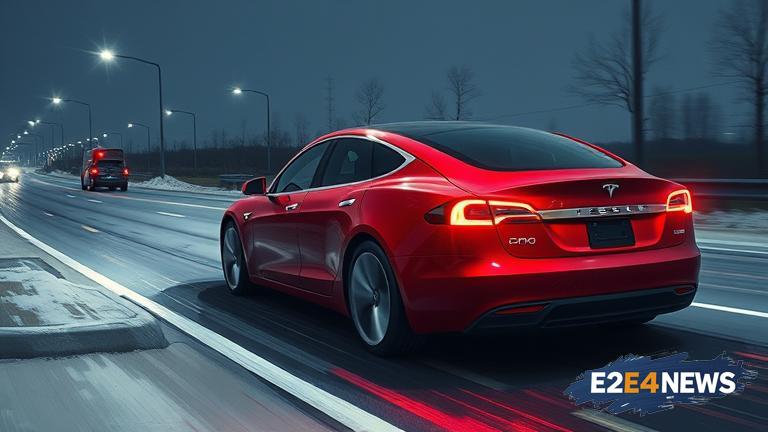The recent verdict against Tesla, ordering the company to pay $242.5M in damages, has sent shockwaves throughout the automotive and tech industries. According to filings, Tesla could have avoided this outcome had it taken more stringent measures to address concerns surrounding its Autopilot system. The case in question involved a fatal accident in which the Autopilot system was engaged, leading to allegations of negligence and a failure to properly warn drivers of the system’s limitations. Tesla’s Autopilot system, which is designed to assist drivers with steering, acceleration, and braking, has been the subject of controversy and regulatory scrutiny in recent years. Despite these concerns, Tesla has continued to market and sell vehicles equipped with the Autopilot system, often emphasizing its potential to improve safety and reduce the risk of accidents. However, critics argue that the company has been overly aggressive in its marketing and has failed to provide adequate warnings and training to drivers. The verdict against Tesla is likely to have significant implications for the company and the broader automotive industry, as it highlights the need for greater transparency and accountability in the development and deployment of autonomous driving technologies. In the wake of the verdict, Tesla has announced plans to review and revise its Autopilot system, as well as its marketing and training practices. The company has also faced increased regulatory scrutiny, with officials calling for greater oversight and stricter safety standards for autonomous driving technologies. As the automotive industry continues to evolve and incorporate more advanced technologies, the need for robust safety protocols and regulatory frameworks has become increasingly clear. The Tesla verdict serves as a cautionary tale, highlighting the potential consequences of prioritizing innovation over safety and regulatory compliance. In the years leading up to the verdict, Tesla had faced numerous complaints and concerns about the Autopilot system, including allegations that it was prone to errors and could be easily misled by external factors such as road debris or construction. Despite these concerns, the company continued to expand the capabilities of the Autopilot system, often through over-the-air software updates. The verdict against Tesla has also raised questions about the company’s corporate culture and its prioritization of safety and regulatory compliance. Some critics have argued that the company’s aggressive marketing and sales tactics have created a culture of complacency, in which safety concerns are often overlooked or downplayed. In response to the verdict, Tesla has announced plans to implement more robust safety protocols and to provide additional training to drivers. The company has also faced calls for greater transparency and accountability, with some critics arguing that it should be required to disclose more information about the Autopilot system and its limitations. As the automotive industry continues to grapple with the challenges and opportunities presented by autonomous driving technologies, the Tesla verdict serves as a reminder of the need for caution and prudence. The development and deployment of these technologies must be guided by a commitment to safety and regulatory compliance, rather than a desire to push the boundaries of innovation and profit. In the end, the Tesla verdict is a wake-up call for the entire industry, highlighting the need for greater accountability and transparency in the development and deployment of autonomous driving technologies. The company’s response to the verdict will be closely watched, as it seeks to restore public trust and demonstrate its commitment to safety and regulatory compliance. The verdict is also likely to have significant implications for the broader tech industry, as it highlights the need for greater caution and prudence in the development and deployment of advanced technologies. As companies like Tesla continue to push the boundaries of innovation, they must also prioritize safety and regulatory compliance, recognizing that the consequences of failure can be severe and far-reaching. The Tesla verdict is a reminder that the pursuit of innovation and profit must always be balanced by a commitment to safety and accountability.
